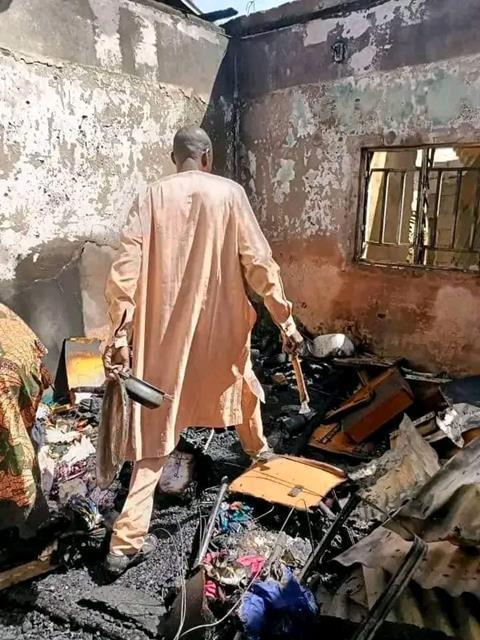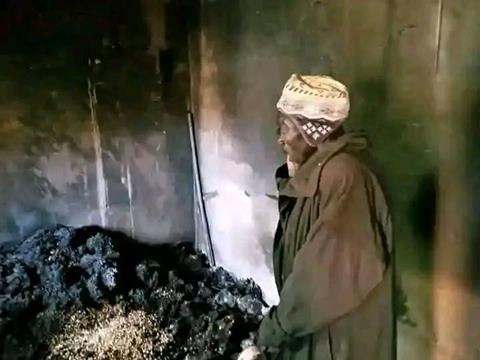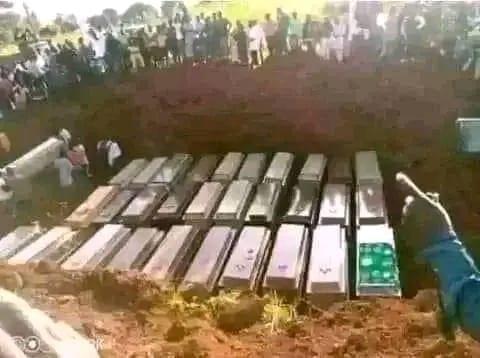Well-armed militants in Nigeria are killing Christians, burning down homes, and destroying church buildings. But Jabez Musa (name changed) says persecution will only make his faith stronger

I will never forget the deep sadness I felt when I heard that my denomination, The Church of Christ in Nations in Nigeria, was closing more than 70 of its churches.
When you hear about churches being closed in the UK, it’s usually because of dwindling numbers and perhaps a lack of money to continue. Nothing could be further from the truth with these churches.
These were vibrant gospel-centred congregations, generally packed to the rafters every Sunday. They played a huge role in the wider communities; something only made possible by the immense generosity of church members.
No, the reason for these closures is tragic: after years of violent attacks from Islamist militant groups, it’s simply not safe for the churches to carry on.
These churches were not just buildings; they were sanctuaries, community centres, and lifelines for countless individuals.
Over the past decade, the middle belt of Nigeria, including Plateau State where our churches are located, has witnessed relentless assaults by Islamist militants from the Fulani people, as well as other extremist factions. In December 2023, during Christmas, over 200 people were killed in a brutal attack. The Nigerian government has yet to bring the perpetrators to justice, reflecting a disturbing pattern of impunity that emboldens these militants.
Churches that once stood as beacons of hope are now just charred remains
The attacks which necessitated the closure of these churches follow a chillingly consistent strategy. Well-armed militants, often carrying AK-47s, descend upon villages without warning. They kill Christians, burn down homes, and destroy church buildings. These are not skirmishes between two armed groups as some commentators have surmised, but one-sided assaults on defenceless communities. In Plateau State alone, where I live, over 64 communities have been overrun by the militants, leaving churches in ruins and congregations scattered, often huddled in displacement camps in inhumane conditions.

The impact on our communities in Nigeria’s Middle Belt has been devastating. Displaced families are now living in camps or with relatives. They are unable to return to their homes or places of worship. Churches that once stood as beacons of hope are now just charred remains. The psychological toll is immense. Many survivors are traumatised, and the constant threat of further attacks looms large in their lives every day.

The closure of these churches means more than the loss of a place to worship; it signifies a tremendous setback for community support systems that have sustained countless lives. The Church of Christ in Nations was passionately evangelistic, but it did much more besides. Their members built schools, providing much-needed education in rural areas where government services are often lacking. They established hospitals and clinics. They also provided agricultural training, helping local farmers improve their yields and support their families.
The impunity with which these attacks are carried out is a major part of the problem. There has been little to no accountability for the perpetrators. The Nigerian government must take decisive action to protect its citizens and hold those responsible accountable.
Despite the bleakness of the current situation, I refuse to lose hope. The resilience of the Christian community in the middle belt of Nigeria is unwavering. We are rooted in our faith and committed to our mission. I believe that with continued prayer, support from our global Christian family, and pressure on the Nigerian government to take meaningful action, we can turn the tide.

We need the international community to stand with us. Governments, human rights organisations, and individuals must raise their voices, urging Nigerian authorities to protect Christian communities and restore justice. Diplomatic efforts can make a difference, but so can grassroots advocacy. Writing to MPs, engaging with international bodies, and maintaining a spotlight on this crisis are all crucial steps.
Ultimately, my hope for the future rests on the strength and faith of our people. We have faced persecution before and only emerged stronger. The same faith that sustained us in the past will guide us through these dark times. Our churches may be closed, but our spirit remains unbroken. The militants may think they are winning, but they will never extinguish the light of our faith.
Jabez’ name has been changed for his security. This story was provided by Open Doors UK.
































No comments yet